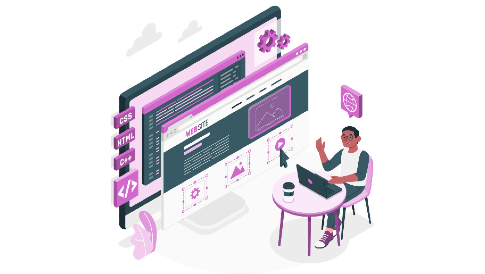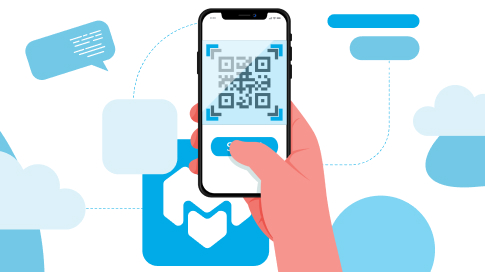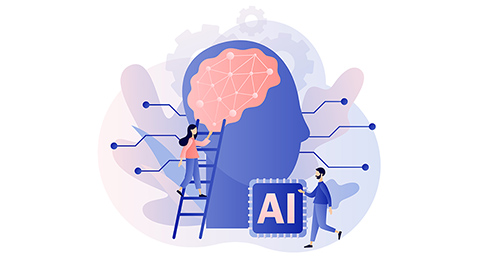Top Trends in Data Visualization and How Consulting Can Enhance Your Analytics Strategy
The importance of data visualization in analytics strategies cannot be overstated. It helps businesses present data engagingly and understandably, facilitating decision-making processes for critical stakeholders. In this article, we will delve into the trends in data visualization and discuss how consulting services can elevate your organization’s analytics approach. To explore how businesses can unlock growth through advanced data visualization, check out this guide on data visualization services.
Dynamic Dashboards for Analysis
Recent developments point towards a shift to dynamic dashboards that offer real-time analytical capabilities. Moving away from charts and graphs, data visualization consulting organizations now embrace visualizations that enable exploration, filtering, and drill-down functionalities. These dynamic dashboards empower users to personalize their view, focus on metrics, and quickly grasp datasets.
Embracing Reality (AR) for Interactions
Augmented reality (AR) has emerged as a potent tool for visualization, gaining widespread traction in recent times. By superimposing elements onto our surroundings, AR allows us to engage with data in immersive three-dimensional environments. Leveraging AR in data visualization enhances user engagement by enabling them to visualize datasets within real-world scenarios.
Integrating Machine Learning Algorithms
Incorporating these algorithms into visualization tools is essential as machine learning progresses and influences analytics. Machine learning algorithms recognize patterns and anomalies more accurately than methods enhancing visualized data by revealing hidden insights and predicting future trends. By utilizing custom algorithms in their visuals, companies gain insights through information derived from intricate patterns uncovered by ML models.
Emphasis On Storytelling
Communication plays a significant role in presenting analytical findings to organizational stakeholders. Visual storytelling involves constructing narratives based on the presented data to engage audiences and maintain their interest. By enriching data visualization with storytelling components like narratives, compelling visuals, infographics, and impactful messages, organizations can effectively convey insights to decision-makers memorably and persuasively.
Incorporating AI-driven Automated Insights
The field of data visualization greatly benefits from AI-driven automated insights. These AI-powered capabilities automatically extract discoveries from datasets, providing descriptive statistics, visual representations, and meaningful interpretations. By utilizing AI-driven automated insights combined with data representations, businesses can develop an understanding of their analytics, facilitating quicker decision-making processes.
The Role of Consulting Services in Boosting Your Analytics Strategy
After discussing the trends in data visualization, let’s delve into how data visualization consulting services can elevate your company’s analytics strategy.
1. Guidance on Selecting The Tools
Seasoned consultants can help you choose the right data visualization tools that align with your unique requirements and goals. With their hands-on experience across all platforms, they select what best suits your organization’s objectives, considering scalability, flexibility, and user-friendliness.
2. Enhancing Data Integration Efficiency
Consultants play a role in ensuring proper integration between your data sources and visualization tools. They identify bottlenecks or issues related to data quality, consistency, or accessibility to streamline the process. You establish a foundation for compelling visualizations by tackling these challenges under expert guidance.
3. Tailored Dashboards and Personalized Solutions
A consultancy team brings expertise in crafting bespoke dashboards tailored to your business requirements. They recognize the significance of presenting metrics in a digestible format for swift decision-making across all organizational levels.
4. Maximizing User Engagement and Adoption
Data visualization consulting services focus on creating appealing dashboards and boosting your organization’s user adoption rates and engagement levels. They offer training sessions, user-friendly UI/UX designs, and continuous support to ensure users can effectively utilize the visualization tools.
5. Emphasize Mobile Responsive Design
With the increasing use of mobile devices, organizations must prioritize mobile-friendly data visualization. Developing dashboards ensures that users can access insights anytime, anywhere, from any device. Mobile-friendly data visualization empowers decision-makers on the move, enabling them to access real-time analytics and make decisions even when they are not at their desks.
7. Integration of Natural Language Processing (NLP)
Natural Language Processing (NLP) revolutionizes data visualization by allowing organizations to interact with users more effectively. Through NLP incorporation, individuals can ask questions conversationally, and the system instantly interprets and provides visualized insights. Organizations remove obstacles for technical users seeking valuable insights by integrating NLP capabilities into data visualization tools.
In Summary
Modern analytics strategies rely heavily on visualization to convert data into easy-to-understand visuals that help organizations make better decisions. Keeping up with the trends in technology and techniques enables businesses to utilize their data potential fully. Consulting services also enhance analytics strategies by providing advice, selecting the right data integration tools to ensure smooth data integration, creating customized dashboards tailored to specific business requirements, and boosting user adoption rates through training and continuous support.




Leave a Reply